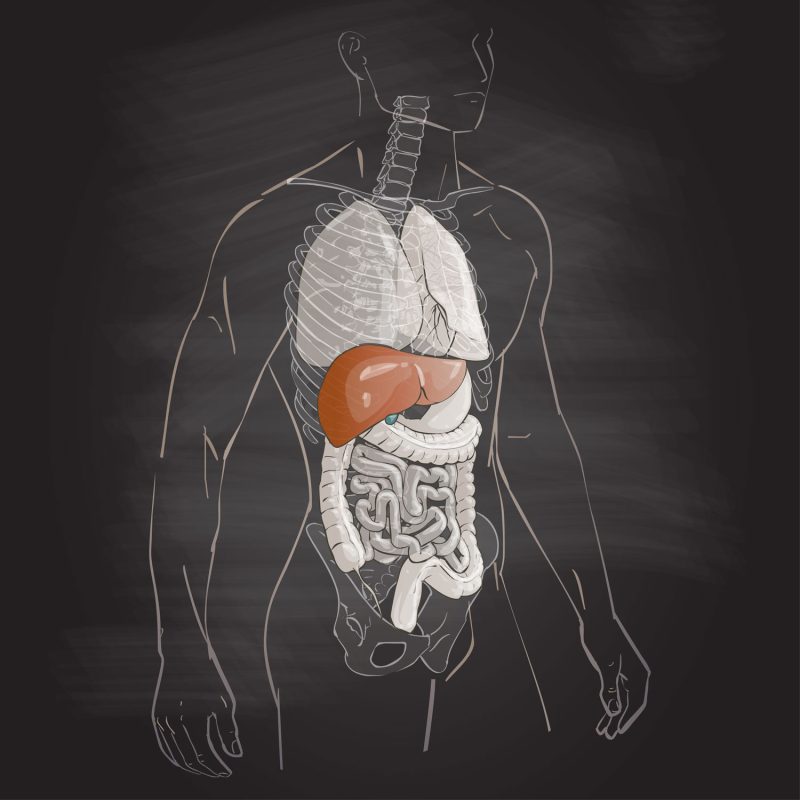Ayurveda
Maintaining a Healthy Liver :Ayurvedic Strategies and Remedies 2023
The liver is a remarkable organ with a myriad of essential functions crucial for overall health and well-being. Its foremost role is detoxification, acting as a sophisticated filter that removes toxins, waste products, drugs, and harmful substances from the bloodstream. Without a properly functioning liver, the body would struggle to cope with the accumulation of toxic compounds, leading to various health issues.
In addition to detoxification, the liver is central to metabolism, regulating blood sugar, processing nutrients, and storing essential vitamins and minerals. It meticulously manages energy balance by converting excess glucose into glycogen for storage and controlling the breakdown and utilization of fats and proteins. The liver also ensures a steady supply of essential nutrients by storing vitamins and minerals and producing critical biochemicals, such as bile for digestion and clotting factors for wound healing.
The liver’s vital contributions extend to the immune system, where Kupffer cells in the liver filter and remove harmful particles from the bloodstream. It also plays a role in maintaining hormonal balance by processing excess hormones, contributing to the body’s overall functioning, including growth, metabolism, and reproduction.
Furthermore, the liver’s involvement in energy regulation, cholesterol balance, blood purification, temperature control, and pH balance underscores its pivotal role in maintaining overall well-being. In summary, a healthy liver is the linchpin of good health, and maintaining liver health through a balanced lifestyle is essential for the body’s proper functioning and overall vitality.
Ayurveda offers a holistic approach to liver health, focusing on prevention as well as management of liver disorders. Here are some Ayurvedic strategies for liver health:
Dietary Guidelines For Healthy Liver:
-
- Maintain a balanced diet that is rich in fresh fruits and vegetables.
- Avoid excessive consumption of fried, spicy, and processed foods.
- Consume foods that are bitter in taste, such as bitter gourd, neem, and turmeric, as they are known to be beneficial for the liver.
- Stay hydrated by drinking warm water and herbal teas.
- Limit alcohol consumption and avoid tobacco and illicit drugs.
Ayurvedic Herbs:
-
- Turmeric (Curcuma longa): Turmeric contains curcumin, a potent antioxidant and anti-inflammatory compound that is beneficial for liver health.
- Milk Thistle (Silybum marianum): This herb is known for its hepatoprotective properties and is commonly used to support liver function.
- Kutki (Picrorhiza kurroa): Kutki is an herb used in Ayurveda to promote liver health and stimulate liver regeneration.
- Amalaki (Emblica officinalis): Amla is rich in vitamin C and antioxidants, making it useful in detoxifying the liver.
Lifestyle Modifications:
-
- Maintain a regular sleep schedule and prioritize restful sleep.
- Engage in regular physical activity to improve circulation and promote overall health.
- Manage stress through practices like meditation and yoga, as stress can affect liver function.
Ayurvedic Cleansing (Panchakarma):
-
- Under the guidance of a trained Ayurvedic practitioner, consider Panchakarma therapies like Virechana (therapeutic purgation) and Basti (enema therapy) to detoxify the liver.
Avoid Overeating:
-
- Ayurveda emphasizes the importance of eating in moderation and not overloading the digestive system, which can put stress on the liver.
Regular Detoxification:
-
- Periodic detoxification using Ayurvedic herbs and techniques can help in maintaining liver health and eliminating toxins from the body.
Consult an Ayurvedic Practitioner:
-
- For personalized guidance and treatment, consult with an experienced Ayurvedic practitioner who can assess your individual constitution (Prakriti) and any imbalances (Vikriti) and create a tailored plan for liver health.
It’s important to note that Ayurveda can play a role in preventing and managing liver disorders, but for serious liver conditions, it is crucial to work with a healthcare provider and follow their recommendations. Ayurveda can be a complementary approach to conventional medical care, and it should not be used as a sole treatment for severe or acute liver problems. Always seek medical advice for any urgent or life-threatening liver conditions. Ayurveda offers a holistic and time-tested approach to maintaining a healthy liver through a combination of dietary recommendations, herbal remedies, and lifestyle modifications.
Ayurvedic principles emphasize the importance of a balanced diet, encouraging the consumption of foods that support liver health, such as bitter vegetables like bitter gourd and turmeric, which are known for their hepatoprotective properties. Herbal remedies like milk thistle, turmeric, and kutki are frequently used in Ayurveda to promote liver health, detoxification, and the regeneration of liver cells. Ayurveda also underscores the significance of a balanced lifestyle, advocating for practices like regular exercise, stress management through meditation and yoga, and adequate sleep to help maintain liver function. Furthermore, periodic Ayurvedic cleansing techniques, such as Virechana (therapeutic purgation) and Basti (enema therapy), can be used under the guidance of a trained practitioner to detoxify the liver and remove accumulated toxins.
Overall, Ayurveda offers a comprehensive approach to liver health that focuses on prevention and the natural balance of the body, making it a valuable complement to modern healthcare for maintaining a healthy liver.


